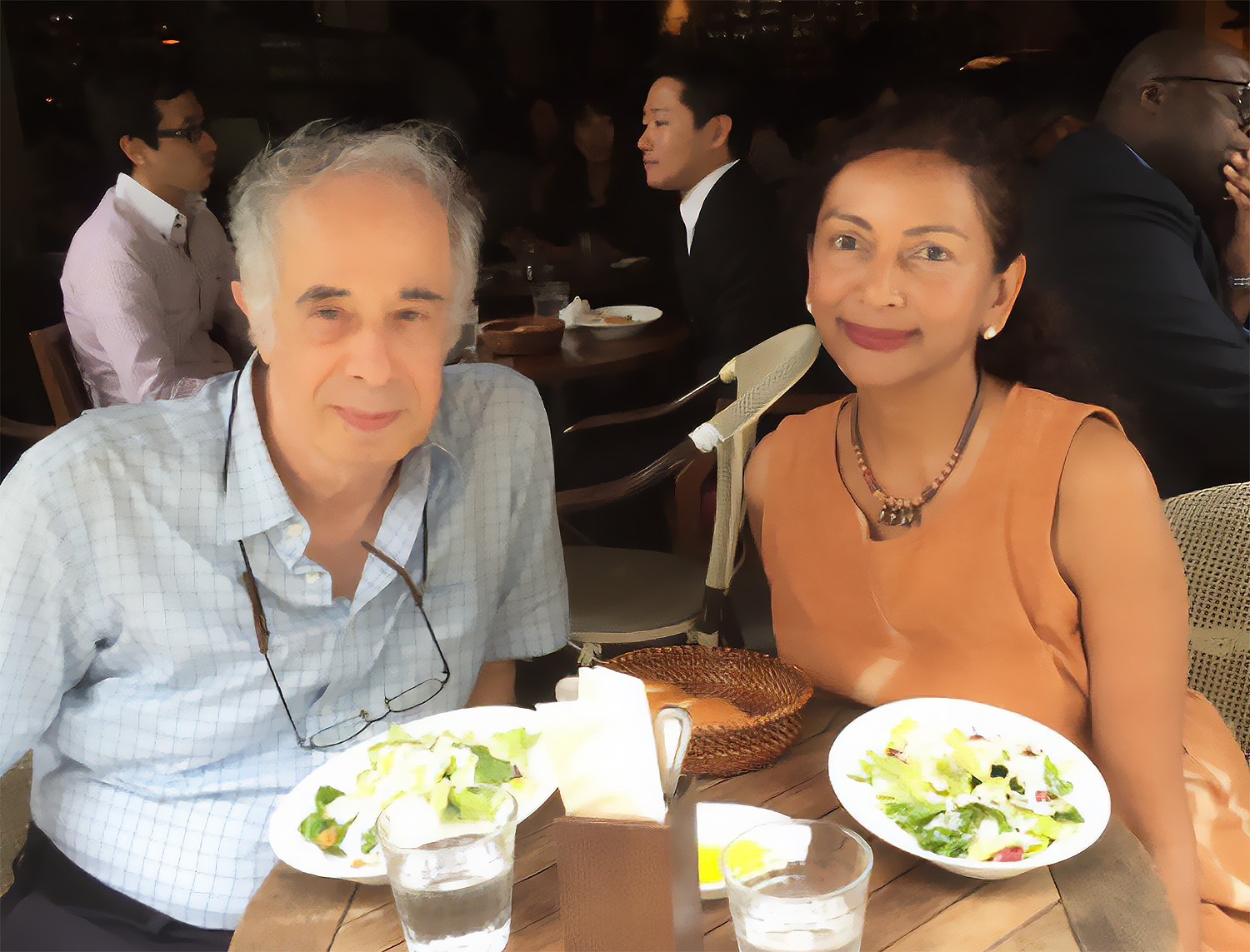Issue:
September 2024 | Obituary
A tribute to longtime FCCJ member Edwin Karmiol, who has died aged 89

Edwin Karmiol arrived in Tokyo in 1967, at a time when Japan was rising rapidly from its wartime defeat. But the young Belgian journalist and photographer was not following the hordes of foreign journalists who were documenting Japan’s transformation into a democracy. His interest in Japan was much more personal … he was here to make plans to settle down in Japan with his soon-to-be wife Noriko, whom he had met in Hong Kong, where she was working for Cathay Pacific.
“He was wandering around Asia, writing and photographing after completing his early education in Venezuela with his extended Jewish family, who had fled Nazi oppression in Europe,” Noriko told me recently. “Our first meeting was at a double date with another flight attendant. The rest is history.”
Edwin’s natural curiosity soon took him into serious journalism, and he began writing stories on a freelance basis for several magazines in Europe (he was fluent in German and English). His assignments for Rex Features, based in Brussels, covered Japan’s postwar technological advances: attractive but affordable cars, state-of-the art tunnels, and a manufacturing industry that produced household appliances for the global middle-class.
But, typically for Edwin, he was most interested in people. Whenever he had the time, he would walk through the streets of Tokyo observing and visually capturing the faces and emotions of ordinary people. “I respect and learn from them,” he said, pointing to his photos, most of which were in black-and-white. His shutter captured with great poignancy the social changes taking place during the Showa era, illustrated in the smiles and bent-over backs of old Japanese women – a contrast with the perms and colorful clothing of their young counterparts. Other images show Tokyo’s now-extinct retro ice cream parlous, with their red cushions, cheap chandeliers and schoolchildren giggling as they eat.
Edwin made a point of visiting Yasukuni Shrine every August 15, the anniversary of Japan’s wartime defeat. In the sweltering heat, he photographed the solemn ceremony as represented in the bowed figures of bereaved families and the presence of rightwing activists dressed in Japanese Imperial Army uniforms. I never found out if his interest in the war was connected to his family’s history – his father died in a Nazi death camp when he was still young.
Edwin left a large number of carefully stacked files of photographs that depict life in all its intensity and complexity. He gave voice to the voiceless, moving his journalism beyond statistics and official announcements. Edwin’s photos are testament to people’s courage and generosity, and their determination to live good lives against the odds.
Edwin joined the FCCJ in 1968, when it was located in Marunouchi, and remained active during its long relocation to Yurakucho and its more recent return to Marunouchi. His closest colleagues, all of whom he outlived, were Robert Whymant, Jack Russell and Peter Hazelhurst.
Edwin became my friend and lunch companion, and often shared memories of the good times. That was a time when foreign correspondents regularly sat at those round tables and argued over issues ranging from politics to the price of the FCCJ drinks. Edwin regarded the club as his second home – he chaired the film committee for a while – and was popular among staff, who laughed at his jokes. He had just turned 89 when he died. His death marks the end of a chapter in the FCCJ’s history. We will miss him desperately.
Suvendrini Kakuchi is Tokyo Correspondent for University World News in the UK.

